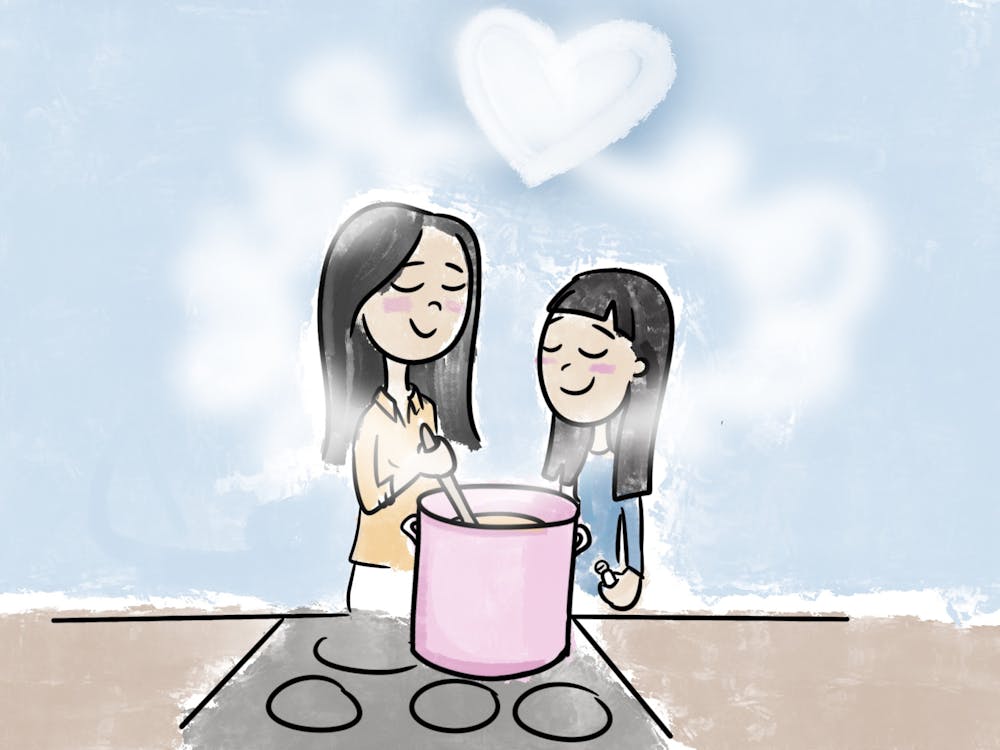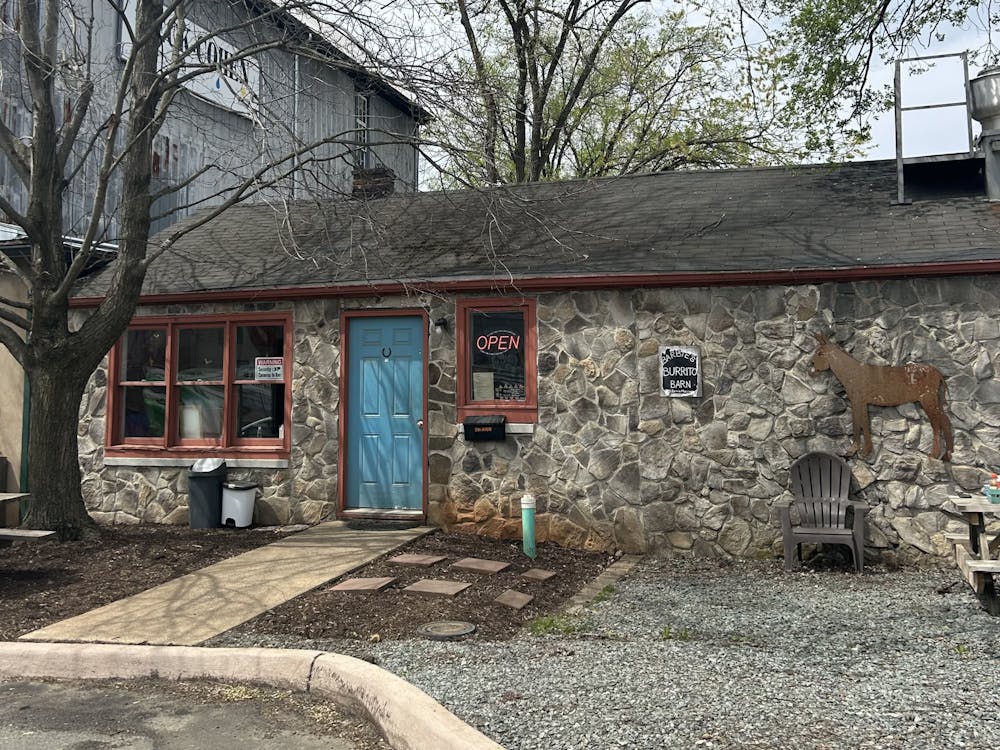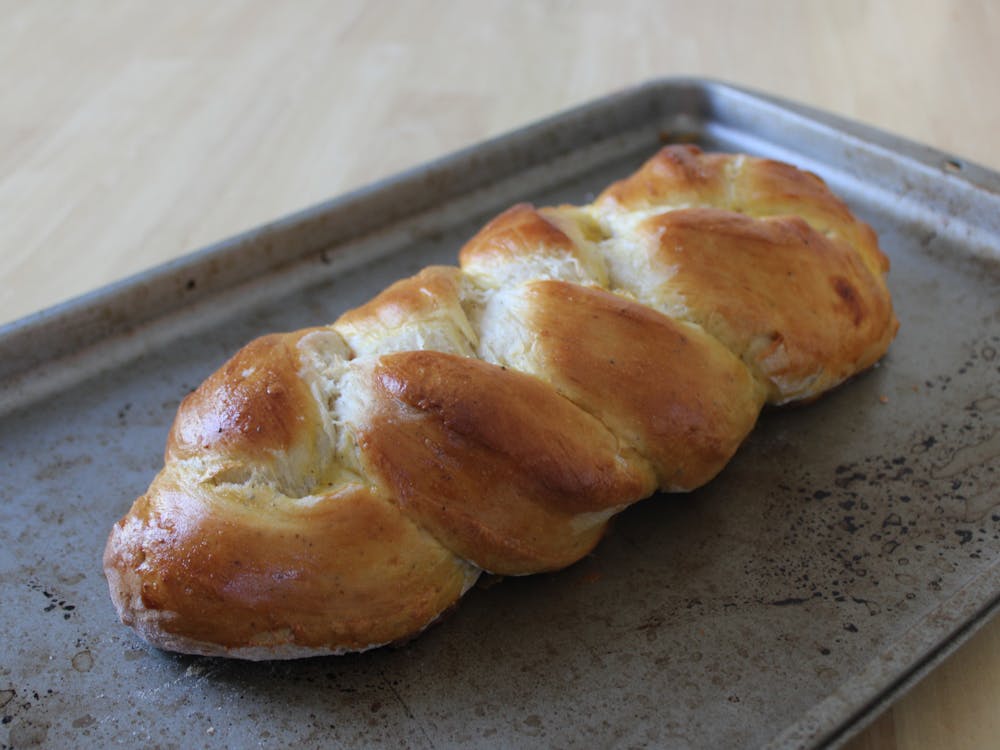Cavalier Daily: Tell me about yourself.
Professor Balogh: I was born in Coral Gables, Florida. I still root for the Miami Hurricanes, and I also root for U.Va., even when they play the Miami Hurricanes. My parents were professional musicians. Growing up, I was required to play piano and French horn. They wanted me to be a talented musician but said they would shoot me if I became a professional musician. I love playing tennis, and I have played since I was a kid. I played basketball with my colleagues in the history department, until about five years ago when they retired my jersey. I love attending college sports. I’ve gone to almost every U.Va. football game. I live in the country; my objective is to never actually walk on grass, but I think it’s pretty out there.
CD: Tell me about your family.
PB: I have three kids. They’re all scheduled to graduate this spring. They’re 24, 22 and 21. My oldest kid goes to VCU and is in the school of fine arts studying ceramics. He also is a budding hip-hop star, or so he thinks. My middle son is at U.Va., studying history, and my daughter’s a senior at Longwood, doing a semester abroad in Leiden, Holland. All three of my kids are adopted; they’re all African-American. My wife is an artist; she’s white. It’s been an incredibly enriching experience to be a minority in my own family.
CD: How long have you been at the University, and what was your career path to get here?
PB: 21 years. It was unusual. I worked in government for seven or eight years. My first real job was doing the welfare budget in Massachusetts for the first caucus administration in Boston. I worked for a politician and ran welfare programs in NYC. I loved working for the government, but I discovered I loved jobs where I was both doing and figuring out how to do them. No one in government actually told me what to do. I didn’t start graduate school [at Johns Hopkins] in history until I was 30. When I went to graduate school, everyone said, that’s crazy; there are no jobs in history. I expected to come back as the best historian sanitation officer. I was lucky to get a job at Harvard for four years, and I was even luckier to get this job at U.Va.
CD: What classes do you teach here?
PB: The two lecture classes that have been most popular are “Viewing America, 1940 to the Present” and “Digitizing America.” In the first, there’s a particular emphasis on how people have viewed history through films, and in the second there’s an emphasis on how digital media has changed how we look at each other as Americans. Both of these classes also provide a general history from 1940 to the present. I also teach a graduate course. It’s been a while since I’ve taught an undergraduate small class.
CD: What are your research interests?
PB: A couple years ago, I published a book called “A Government Out of Sight,” [about] the mystery of national authority in 19th-century America. That was a change for me, because I’m really a 20th-century historian. I wanted to discover how we got a large government presence.
There was even more intrusion into Americans’ lives than we have today. I argued that Americans liked government but not bureaucracy. Shrewd politicians have figured out how to deliver government services out of sight. What I’m working on right now, that [the University of Pennsylvania] to publish, is “Between the Cycles: Essays on the Evolution of Governments in 20th Century America.” I write about American attitudes toward governments, the use of experts in policy making and bureaucratic politics.
CD: What are your other interests?
PB: Peter Onuf, Ed Ayers and I do a weekly radio story as the American History Guys. We’ve been in 30 of the 50 major public radio markets on topics like the history of college sports, running this week, to political conventions. Peter is the 18th century guy, Ed is the 19th century guy and I’m the 20th century guy. We take phone calls from around the world. We’ve had about a million and a half downloads. It’s a great way to try to make history accessible and interesting for those who otherwise wouldn’t spend time reading books about history.
CD: What’s your favorite teaching experience/story?
PB: When I was just starting Viewing America, I started it as a start class and limited it to 30 students. Because it was a small class, discussion was important. I had a student who didn’t say a word but she came and met with me during office hours. She was African American from a military family, and there was pressure on her to go to professional school and earn a lot of money. We convinced her to do a little historical research on Charlottesville land records in the 19th century in the summer. She went and got her Ph.D. at Yale and now she’s an assistant professor of history at the University of Michigan. It was nice to see a shy, smart person go into history when she could have done anything. I try to convince talented minority students to go to graduate arts and sciences programs. She’s probably angry with me, because she could be a millionaire by now as a lawyer.
What are your greatest accomplishments?
Experimenting through this radio show with ways to make a serious discussion of history engaging and capable of reaching a broader audience. Also, mentoring hundreds of undergrads and dozens of grad students and convincing a handful of talented minority undergrads to pursue a career in history. My greatest failures are every political candidate I have ever worked for; they’ve all lost except Barack Obama.




